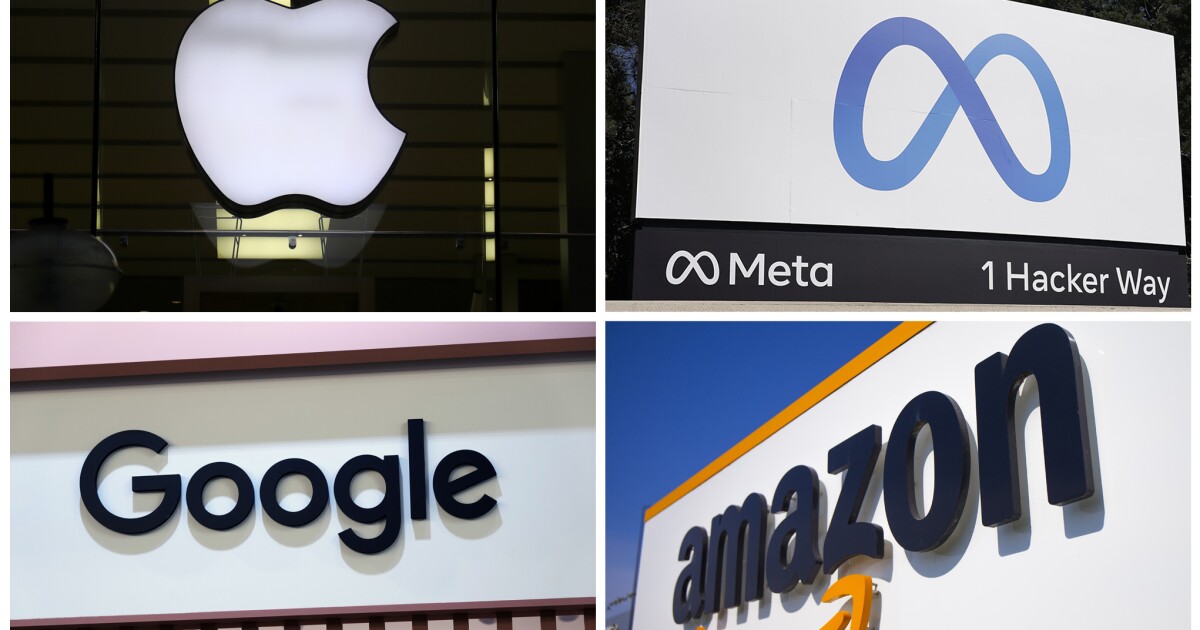

Federal and state government officials struggled in 2023 in their attempt to curb the power and growth of Big Tech companies.
Social media platforms such as Meta, Google, and Apple account for massive shares of their marketplaces, including in advertising, media, and the public’s attention. Their cultural dominance resulted in support on both sides of the aisle for breaking the companies up — and, in particular, for regulating them with respect to teenage users. Most attempts, though, hit legislative or judicial obstacles, leaving the year less fruitful than some lawmakers may have wished.
WHITE HOUSE PROMOTES ‘IMPACTFUL’ BIDENOMICS IN END-OF-YEAR MEMO
Here’s how lawmakers and regulators in the United States tried to rein in Big Tech.
Congress and the White House
President Joe Biden made an early push in his 2023 State of the Union address to get Congress to unite around holding Big Tech accountable and to ensure teenagers were safe on the platforms while exploring the internet. This included an indirect endorsement of the Kids Online Safety Act, legislation that would require social media companies to take steps to prevent a defined set of harms to minors, including the promotion of suicide, substance abuse, sexual exploitation, and drug or alcohol use. The legislation moved through the committee on the Senate side but struggled to find a vote on the floor afterward.
Sen. Amy Klobuchar (D-MN) also reintroduced the American Innovation and Choice Online Act in June, a bill that would allow federal antitrust agencies to issue civil penalties to “covered platforms” such as Amazon and Google for unfairly preferencing their own products on their platforms. However, the bill failed to gain traction or get considered for committee markup.
State lawmakers saw it as their role to step up and set rules for social media companies. Utah, Arkansas, and California each passed their version of a law in 2023 requiring social media platforms to verify users’ ages and implement additional security standards for underage users. All three states had their age verification laws blocked in court based on allegations that the rules violated the First Amendment.
Some states have also attempted to implement laws requiring websites to verify a user’s age if they wish to view pornographic content. Over half a dozen states have embraced such laws in 2023, although Texas’s law was blocked in court on First Amendment grounds.
The FTC and the DOJ
The Lina Khan-led Federal Trade Commission attempted to crack down on Meta, Microsoft, and Amazon through lawsuits to block proposed mergers and ensure that the companies could never acquire the monopolies that Khan alleged they were building.
CLICK HERE TO READ MORE FROM THE WASHINGTON EXAMINER
Meta’s attempt to acquire the AI-fitness developer Within went through in February despite the FTC lawsuit blocking it. Microsoft’s nearly $70 billion purchase of Call of Duty developer Activision Blizzard finally got approved in October despite resistance from the FTC and the United Kingdom. The FTC does have an ongoing suit with Amazon over how it treats its sellers and is expected to have oral arguments in 2024.
The Department of Justice also went to court in September to argue that Google held an illegal monopoly through its agreements with mobile phone-makers and web browser developers to become the default search engine. The judge’s final decision is expected in late spring 2024.





